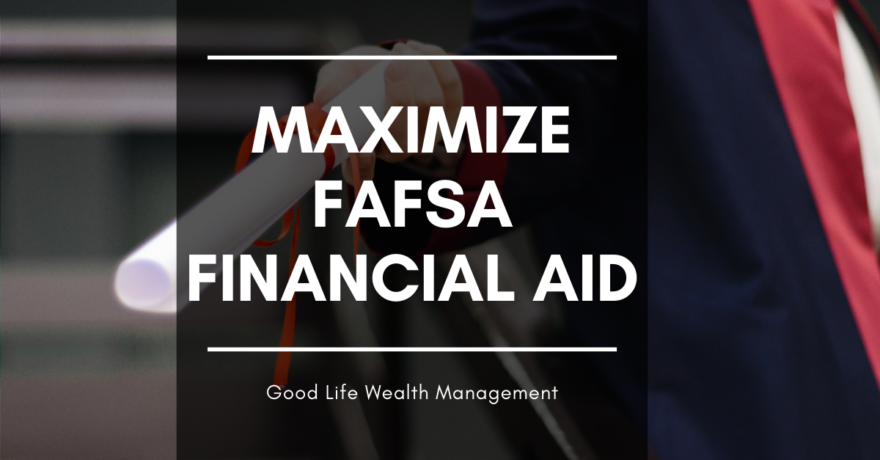We are going to discuss three specific strategies:
- Moving Assets from reportable sources to non-reportable locations
- Reducing cash by paying down debt
- Avoiding assets in the child’s name
Before we get to the details, a few caveats. First, some of the expected family contribution is based on the parent’s income. If you have a high income, your reported assets may not make a big difference in financial aid. Second, it’s possible that the college’s solution to your financial need will be to offer more loans, rather than a scholarship. We want to be careful about taking large loans for college, as these are increasingly becoming a significant burden for students and parents. Some schools have a generous amount of need-based financial aid available and at those schools, these strategies may increase the scholarships your student receives.
Non-Reportable Assets on the FAFSA
Non-reportable assets include:
- All Qualified Retirement Accounts, such as 401(k), 403(b), IRA, Roth, SEP, and SIMPLE plans
- Your home
- Small businesses
- Household items and personal possessions
If you are planning on a child going to college in a few years, you may want to put as much as you can into your non-reportable assets, such as retirement accounts, and not into a savings account or taxable investment account. If you have a lot of cash, look at maximizing your 401(k) and IRAs to shift your investments into retirement accounts.
Paying Down Debt
If you have credit cards, car loans, or a home mortgage, that debt does not get considered on the FAFSA. Your cash, however, will be counted towards your expected Family Contribution. If you want to maximize your eligibility for student aid, you could pay down debt. This will reduce the cash you have as a reportable asset. And your home, cars, and personal assets are not considered on the FAFSA.
Obviously, you want to make any changes well in advance of applying for financial aid and make sure you keep enough cash for your emergency fund.
Avoid Assets in the Child’s Name
Assets of the child will have an expected contribution of 20% a year, whereas an asset of the parent has a maximum contribution of 5.64%. Having a lot of money in the name of a college kid will reduce their financial aid eligibility. This is a problem with the UGMA account for minors – colleges expect that this account will be fully available for tuition and expenses.
If your pre-college student has earned income, it may be preferable to put their assets into a Roth IRA than into a savings account. In the year of the FAFSA application, a retirement contribution is typically counted as eligible income, but not as a reportable asset. The assets in a Roth IRA accumulated before college are not a reported asset. This way, the money your child earns before college can start to grow for them and not get sucked into college expenses.
College funding is an important part of financial planning. A lot of people think college planning means getting a 529 plan. There is more to it than just 529 plans. By managing your reportable assets, you can maximize your FAFSA financial aid.







